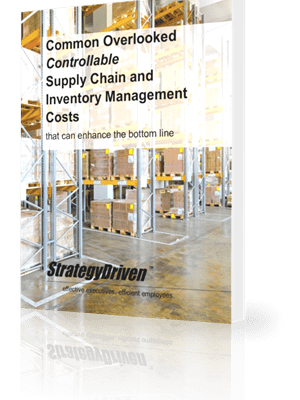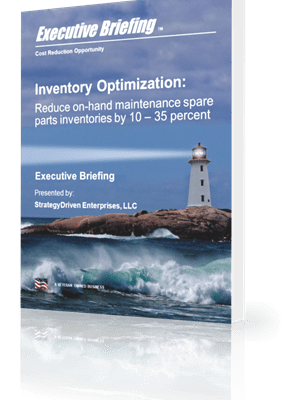The Scope of Supply Chain Management in the Corporate Sector
In today’s fast-paced economy, businesses can’t take a solo flight and achieve business goals. To achieve perpetual growth and increase revenues, businesses need to work closely with all parties involved in fulfilling core business operations. This includes a business’s suppliers, logistics partners, warehousing, distribution, retailers, and end-users or customers. Increased sales can be directly attributed to how successfully a business collaborates with the entire supply chain.
Supply chain management has immense potential to enhance business operations, improve productivity, and increase a business’s agility to changing market trends and customer demand. This article sheds light on the importance of supply chain management and its effective role in the corporate sector.
Understanding Supply Chain Management
Every product that reaches the customer is a result of a chain of activities, starting from acquiring raw materials from nature to processing, producing, and distributing finished products. Various entities work together to convert an idea into a product and ensure it reaches the intended customers acting as a loop in the chain. A single missing loop can disrupt the entire chain of businesses. These entities combine to form what we call a supply chain. Supply chain management (SCM) entails the optimal execution of all these events in a sustainable, cost-effective, and efficient manner using technology to cater to customers’ demands and minimize delays.
Since businesses rely heavily on supply chain experts to make sourcing strategies, forecast production, and maintain a balance between product supply and demand, they hire MBA in SCM graduates as logistics managers, supply chain managers, logistics analysts, procurement managers, and director purchasing. Due to its increased demand, educational institutes now offer degree programs, diplomas, and courses to equip students with conceptual and technical knowledge of SCM. Students can also choose an online MBA in supply chain management as a way to learn and work at the same time. MBA graduates with a concentration in supply chain management can use various strategies, tools, techniques, and methodologies to source, produce and distribute products.
Scope of Supply Chain Management in the Corporate Sector
No matter the nature of the business or which type of market a business operates in, it cannot exist in the fiercely competitive market without effective supply chain management; no company in the supply chain environment can exist long-term without SCM. This is why supply chain management’s scope, role, and significance cannot be overlooked. Here’s why supply chain management is gaining tremendous importance in the corporate sector today:
Reducing Operational Costs
SCM lowers the cost of operating a business by reducing the cost of material acquisition, production, and distribution. While specialized intelligent SCM systems play an important part in optimizing business processes, the right supply chain strategy by supply chain experts helps businesses choose the best supplier, minimize sourcing delays, and reduce the overall operational cost of production. Most supply chain strategies focus on optimizing supply chain entities and sourcing directly from ground-zero suppliers instead of third-party vendors. This increases sourcing efficiency, reduces operational costs, and improves product manufacturing and dispersal cycle.
Increase Cohesion and Interconnectivity
Supply chain management is about increasing cohesion between all parties involved in conducting core business functions. Supply chain management allows increased cohesion and interconnectivity between all parties involved, including suppliers, logistics, retailers, and consumers. Increased communication between these parties is vital for a business to increase market agility and reduce production and dispersal delays. It addresses significant difficulties related to corporate development, business partnerships, outsourcing, brand awareness, and product line expansion.
Operational Visibility
One of the major challenges for any business is enhancing its operational visibility in complex supply-and-demand structures. Operational visibility refers to an organization’s capacity to clearly understand how its major operations are functioning, and this is only possible by effectively monitoring all processes involved in the supply chain.
Effective supply chain management systems combined with business intelligence and data analytics equip supply chain experts with the right tools and knowledge to get an insight into business performance, market trends, and product performance. These tools allow them to better grasp the supply chain’s strengths and limitations and discover changing market trends that help them make better strategic decisions.
Decreased Disruptions
The more complex a supply chain network is, the more vulnerable it is to source and supply disruptions and market risks. Integrated SCM systems allow experts to study past data and analyze and predict future patterns. This helps businesses minimize disruptions in production, logistics, and distribution. Businesses can predict potential disruptions like price hikes, shortages of raw materials, increased market demand, or changes in transport routes.
Integrating Technology to Increase Agility
Businesses must implement agile supply chains to stay ahead of their competition and ensure the product maintains a supply-and-demand ratio in the market. Businesses achieve this by implementing integrated supply chain management systems that bring all entities involved in a supply chain to a single technological platform.
Supply chain management systems are important in increasing communication among entities and integrating major business functions. For example, suppliers can monitor a business’s raw material inventory and are instantly notified when inventory reaches replenishment points. Similarly, these integrated systems can generate automated purchase orders to vendors for approval by purchasing officers. Integrated SMS systems help businesses remove inefficiencies, optimize business processes, and improve agility in the supply chain to respond efficiently to changing market demand.
Businesses can detect problems and discover suitable solutions by optimizing and simplifying business processes. Businesses can use intelligent SCM systems with big data analytics to run what-if analyses and predict business performance under various unprecedented scenarios to examine alternatives and discover the best possible solution for a particular situation.
Final Thoughts
Supply chain management acts as a backbone for businesses to survive in the increasingly competitive global marketplace. To achieve perpetual growth and increase agility in a dynamic market, businesses need to incorporate the latest technology tools in their existing supply chain management systems and make smart use of supply chain analytics. When a business effectively reduces operational costs and improves cohesion among all supply chain entities, it reflects on its financial position and product or service quality. With smart SCM tools, businesses can improve revenues, meet production and sales targets, and achieve perpetual growth. Integrated supply chain management systems take all stakeholders on board and benefit each supply chain entity individually and collectively. We hope this article will help you recognize the importance of supply chain management and its role in business success and growth.





 GET THE FREE WHITEPAPER…
GET THE FREE WHITEPAPER…
